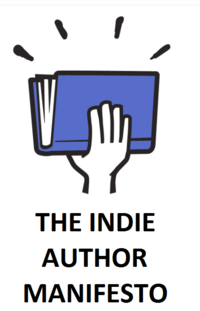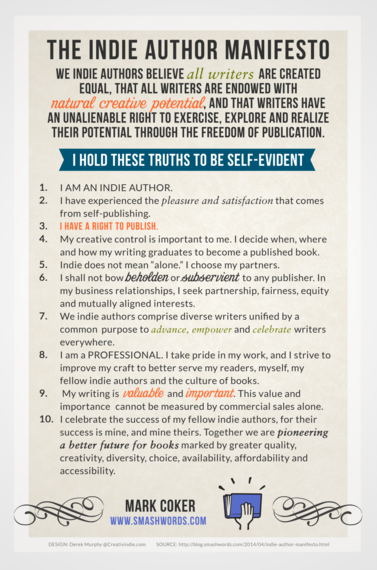Over the last few years, book publishing has witnessed a dramatic change in attitudes regarding self publishing. Much credit goes to indie ebook authors and the readers that have embraced them.
Prior to the rise of ebooks, traditional publishers controlled the access to retail distribution. Without access to retail stores, it was nearly impossible for self published print authors to achieve commercial success. Without commercial success, it was difficult for self published authors to escape the stigma of "failed author."
 All this changed with the rise of ebooks over the last six years. Starting in 2007 with Amazon and followed closely thereafter by Sony, Barnes & Noble, Kobo and Apple iBooks, major ebook retailers opened their virtual shelf space to self-published ebooks.
All this changed with the rise of ebooks over the last six years. Starting in 2007 with Amazon and followed closely thereafter by Sony, Barnes & Noble, Kobo and Apple iBooks, major ebook retailers opened their virtual shelf space to self-published ebooks.
Indie authors began publishing high-quality ebooks at low consumer prices, and consumers responded by propelling some of these authors into the bestseller lists.
A few years ago, it was practically unheard of for an indie author to hit the New York Times bestseller list. Now it happens nearly every week.
The commercial success of these indie authors inspires the next generation of writers.
Today, indie authors are in the cool kids club. An increasing number of new writers now aspire to indie publish. If the trend continues, within a few years it's likely more new writers will aspire to self publish than traditionally publish.
Much as been written about the advantages of ebook self publishing from the writer perspective, such as faster time-to-market and dramatically higher per-unit royalty rates. Despite these surface advantages, few outside the indie author community have yet to grok the true drivers behind the indie author movement.
It's not an exaggeration to label the indie author movement as a global cultural phenomena. Authors no longer need publishers to reach readers. We're witnessing a transition from a publisher-centric world to an author-centric world. The full extent of these changes won't be felt for several more years.
Like any cultural movement, the rise of indie authorship is driven by profound changes in social norms, ethical values, customs, belief systems, technology and business practices.
With this radical change in mind, I have created my INDIE AUTHOR MANIFESTO.
I attempt to answer a couple simple questions: 1. How do indie authors view themselves? 2. What are the values, philosophical motivations and aspirations of indie authors?
The manifesto distills the movement down to ten principles I think capture the mindset of indie authors. I welcome your feedback.
I tip my hat to the many great manifestos that have come before my own meager attempt, including the US Declaration of Independence, the Ten Commandments and Martin Luther's 95 Thesis among others.
THE INDIE AUTHOR MANIFESTO
We indie authors believe all writers are created equal, that all writers are endowed with natural creative potential, and that writers have an unalienable right to exercise, explore and realize their potential through the freedom of publication.
I hold these truths to be self-evident:
- I am an indie author.
A longer version of this post originally appeared at The Smashwords Blog. Infographic design by Derek Murphy (@creativindie ), reproduced here with permission.
Enjoy HuffPost Entertainment — Ad Free
Already contributed? Log in to hide these messages.

